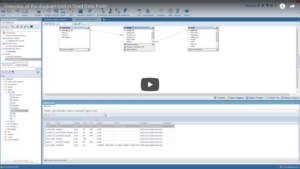By next year, there will be more digital bits than stars in the universe, according to IDC. That’s a daunting prospect for any data professional. Add to that the complexity of data types and the ever-growing number of data sources, and it’s easy to see why it may be time to reevaluate your data management strategy. Think about it, if you’re overwhelmed today, switching to a modern approach is the only way to keep up tomorrow.
Taking charge of your data universe
With so much data to manage right now, it may feel as if you don’t have time to regroup. But taking a break to step back and look at the big picture will help you better prepare for and tackle the new challenges heading your way.
Let’s get into it.
By making three simple changes to the way you work with data, you’ll save hours, reduce stress and ensure data accuracy. Ready? Good. Because these small changes will make a huge difference in helping you access and prepare data.
- Use fewer tools.
Switching around from native tools and point solutions to spreadsheets and home-grown apps and back again, not only wastes time, but it also makes it harder to ensure data accuracy. Imagine how much faster you could work and how fresh your data would be if you could use a single console to access nearly any data source. This reduction in query and reporting tools is one of the best-kept secrets among successful data management professionals.
- Eliminate the need for SQL expertise.
Manually writing SQL queries is tedious, time-consuming work. And if you don’t truly have the proper training, it can lead to major issues later. But what if you had a built-in SQL expert to help generate queries for you? Imagine building queries in a few clicks. This would prevent mistakes and give you more time for the work you enjoy.
- Empower business users.
Supporting business teams is important work, but consider how much more productive everyone would be if you could offload some of that responsibility. With intuitive interfaces, drag-and-drop templates and automated workflows, you can safely and efficiently enable business users to get the data they need when they need it – freeing even more of your time. Talk about a win-win!
A better approach to data preparation
By preparing for tomorrow’s data growth today, you’ll put yourself in a better position to maximize the value of your data, without getting overwhelmed. Reducing the number of database reporting tools you use, adding automation and providing a self-service solution to the business will go a long way in easing your data-prep stress. Plus, this strategy will give you more time for the projects that showcase your talents. Simply put, simplifying data preparation is good for your company and your career.
Gain more expert insight.
For more ways to ease your data preparation challenges, download our complimentary white paper today.


